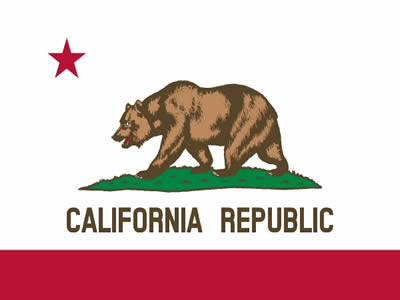A multi-year effort to pass online poker legislation in California may finally be paying off as AB 2863 (also known as Gray’s Bill) finally gets its day in the sun. After heavy debate and much discussion, the Assembly Appropriation Committee passed the legislation through on June 22, 2016. Assembly approval was a requirement before the California State Senate would act on it. The bill is a result of years of negotiations and debate among various parties, including several Indian tribes with existing gambling interests in the Golden State.
The bill provides regulatory oversight for legalizing online poker in California, and according to its sponsor Adam Gray, the bill was held to unprecedented standards before being approved to head to the full Assembly for consideration. Gray stated that if every bill were held to the same standards as AB 2863, then legislation would never get passed. This is the most progress that interactive online poker legislation has made in the state of California.
The Poker Players Alliance Executive Dir., John Pappas expressed the desire of the PPA to work closely with CA lawmakers to deliver legislation that puts the well being of consumers as the first priority while assisting in removing the hindrances that have had the bill at a stand still for years. Pappas also praised Adam Gray for his diligence and commitment to California consumers. Testimony during the Assembly demonstrated that there is still work to do before final passage of the bill can be achieved.
Much of the debate and discord still present concerning the bill has to do with tainted assets and bad actors. Multiple amendments were added to the bill after a lengthy debate on Tuesday, the day before the Assembly was to consider it. One of the amendments included a $20 million fine or a 5 year waiting period for any iGaming company that had provided online poker services to the California gambling market from 2006 through 2011. Paying the fine would negate the waiting period. Those companies that provided services to the CA gambling market after 2011 would be facing a permanent ban from acquiring a license in the Golden State altogether.
Gray feels confident about the language of the bill after spending a significant amount of time negotiating with the Committee. The discussion that focused on tainted assets included a list of PokerStars’ previous CA players. Many believe PokerStars has an unfair advantage due to their list of former players from California who could be an instant customer base for them. The bill currently has a three year blackout period on those lists, and Gray suggested they discuss a permanent ban. Gray also pointed out that PokerStars exited the US market over five years ago on Black Friday, and that even Facebook provides a clear picture of Californians interested in online poker.
As far as the amendments regarding the waiting period vs $20 million fine, some questioned whether the fine’s amount was sufficient or should be increased considerably. Assemblyman Ian Calderon questioned the figure and pointed out that the bad actors could pay a great deal more and possibly should pay more. While multiple Assemblymen had concerns regarding PokerStars, Bill Quirk pointed out that punishing Amaya Gaming may not necessarily be fair. Amaya acquired PokerStars after they left the US market, and hence were not party to any of the questionable actions of the brand. Quirk felt that the only tainted asset involved in this case is the brand’s name, with the founders of PokerStars long gone.
Not everyone is satisfied with the way that tainted assets are addressed in the bill. Leland Kinter, representing the Yocha Dehe Tribe, expressed concern that the amendments do not appropriately address the issue of tainted assets, and could put Tribal gambling interests at risk should brands such as PokerStars enter the market with an unfair advantage.
Committee Chair Lorena Gonzalez requested clarification regarding the application of the bill’s language. She agreed that the bad actor language deserves further scrutiny, but also wanted it made clear that the bill only applies to online poker and not to interactive gaming in general. With the understanding that these issues would be further addressed, the bill was passed.

